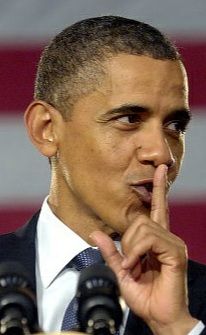This story broke last week, just as millions of Americans were tuning out of the news cycle for Thanksgiving. Given the seriousness of the subject matter, it deserves a re-up. National Review reports:
President Obama didn’t require Iranian leaders to sign the nuclear deal that his team negotiated with the regime, and the deal is not “legally binding,” his administration acknowledged in a letter to Representative Mike Pompeo (R., Kan.) obtained by National Review. “The Joint Comprehensive Plan of Action (JCPOA) is not a treaty or an executive agreement, and is not a signed document,” wrote Julia Frifield, the State Department assistant secretary for legislative affairs, in the November 19 letter. Frifield wrote the letter in response to a letter Pompeo sent Secretary of State John Kerry, in which he observed that the deal the president had submitted to Congress was unsigned and wondered if the administration had given lawmakers the final agreement. Frifield’s response emphasizes that Congress did receive the final version of the deal. But by characterizing the JCPOA as a set of “political commitments” rather than a more formal agreement, it is sure to heighten congressional concerns that Iran might violate the deal’s terms.
Oh. Joel Gehrke notes that Iran's president -- much like our own -- strongly discouraged his country's legislature from voting on the agreement at all, arguing that parliamentary approval would "create an obligation" and impose an "unnecessary legal restriction" on the regime. Rouhani warned that passage would force him to sign the document, which he'd avoided doing. A vote was held anyway; the deal was approved, 161-59. It apparently remains unsigned. (The United States Congress never formally weighed in on the terrible deal because Senate Democrats repeatedly obstructed any vote, in order to shield President Obama from the political humiliation of explicitly overruling strong bipartisan opposition). The vote in Tehran was purely symbolic, of course. The 'Supreme Leader' runs the show in that country, and he allowed his so-called Guardian Council to sign off on the accord, guaranteeing its adoption. But according to our State Department, that "adoption" wasn't technically binding under international law. The agreement represents "political commitments" secured by negotiators, we're told, "and is not a signed document." Question: If this pact isn't binding or even signed, wouldn't the resulting flexibility cut both ways? Couldn't the next American president simply tear up the empty signature page of the deal upon entering office and be rid of it? Maybe so, legally speaking.Read the rest of the story HERE.
If you like what you see, please "Like" us on Facebook either here or here. Please follow us on Twitter here.




No comments:
Post a Comment